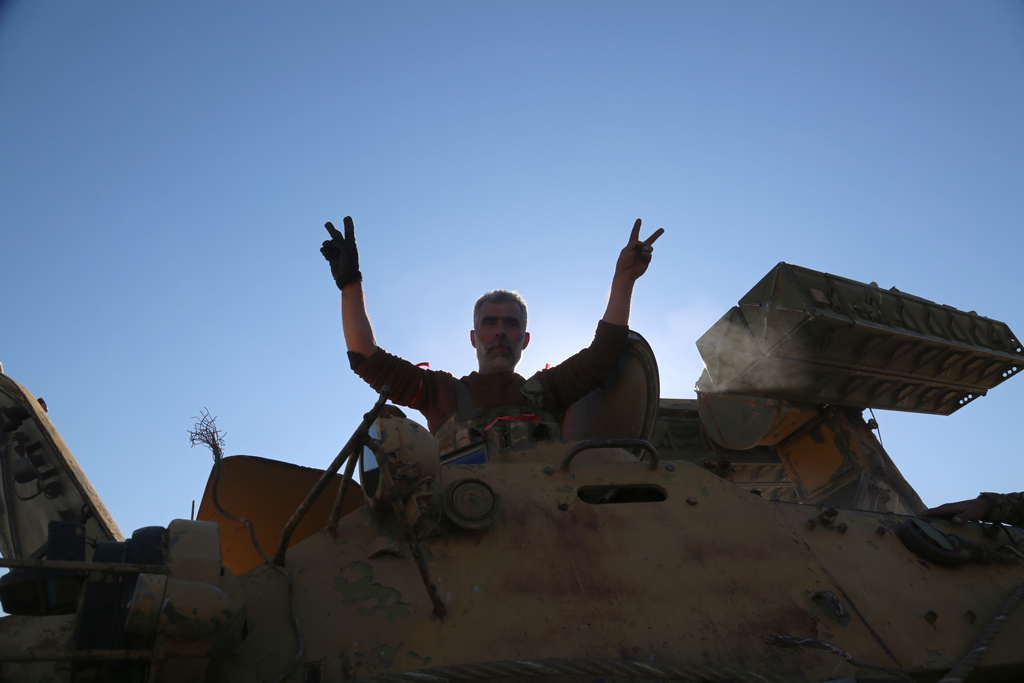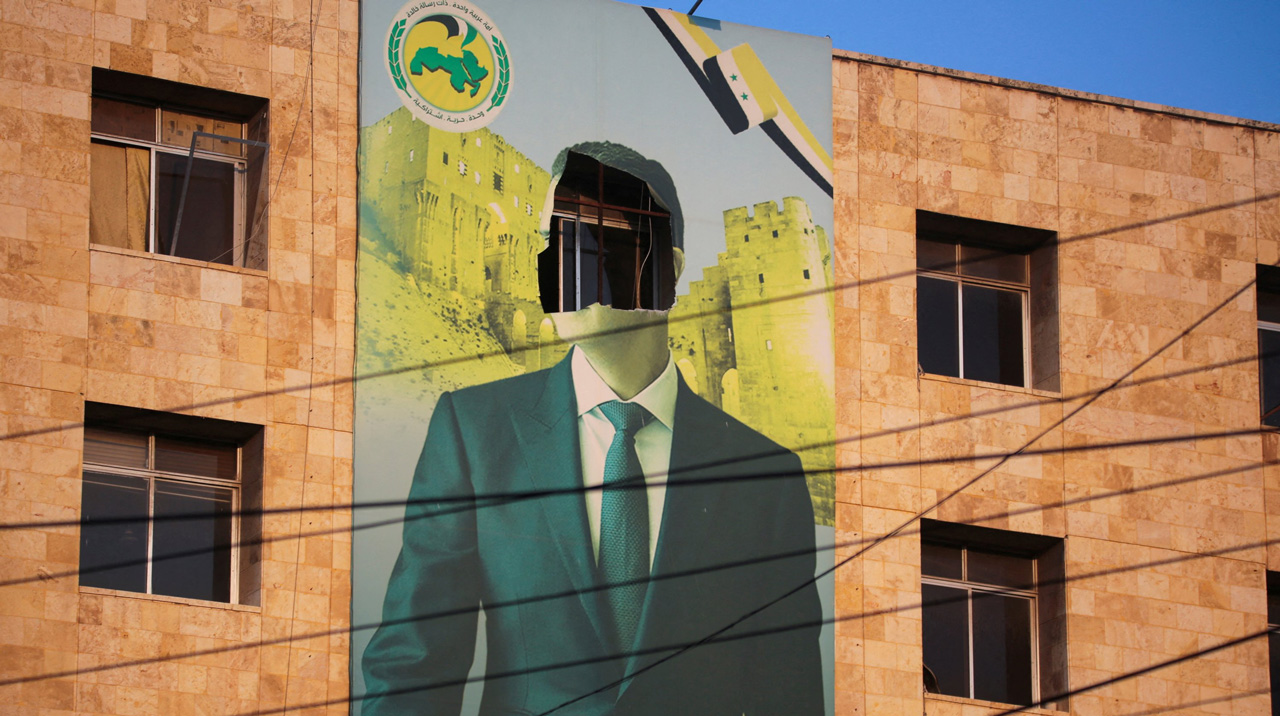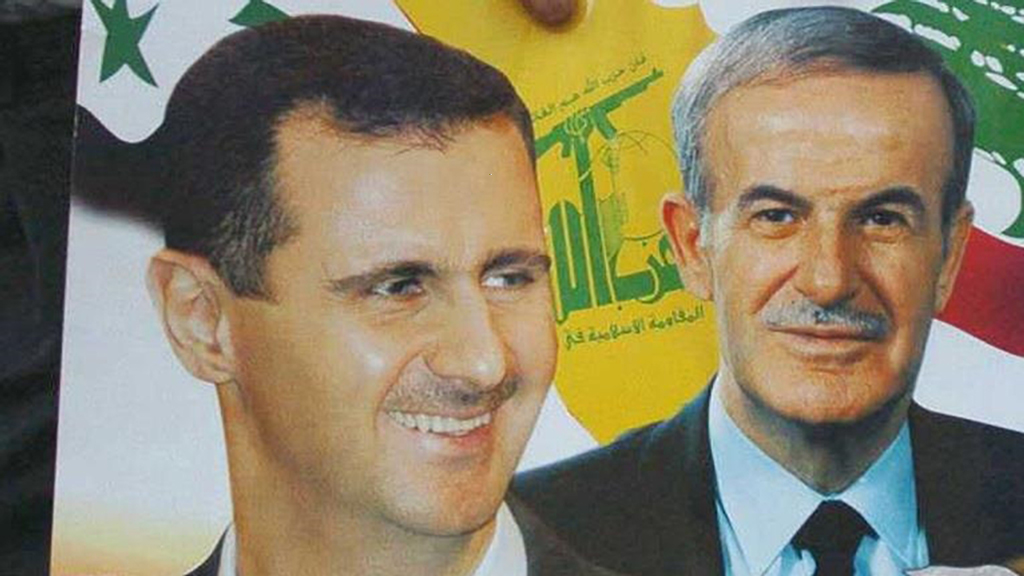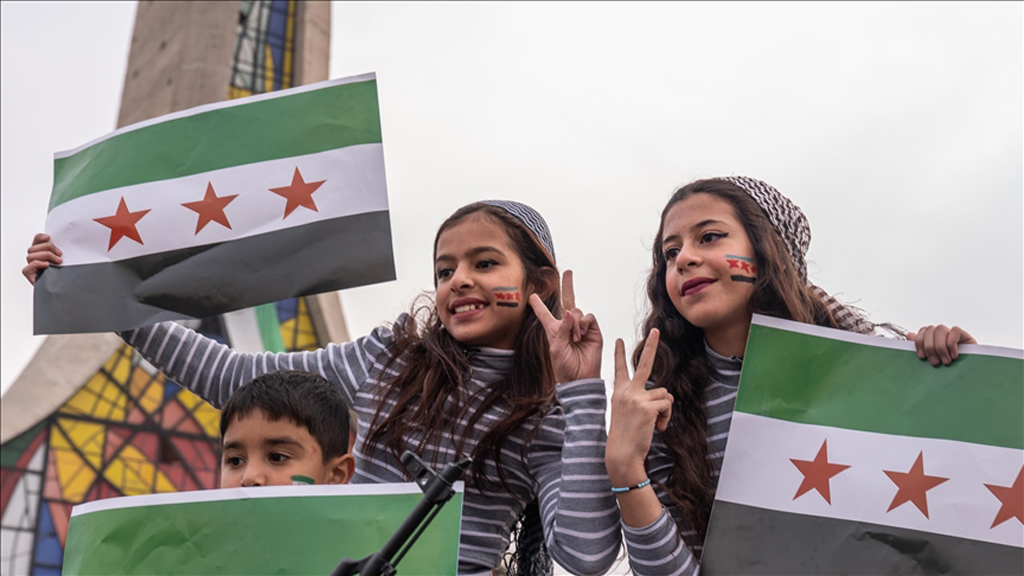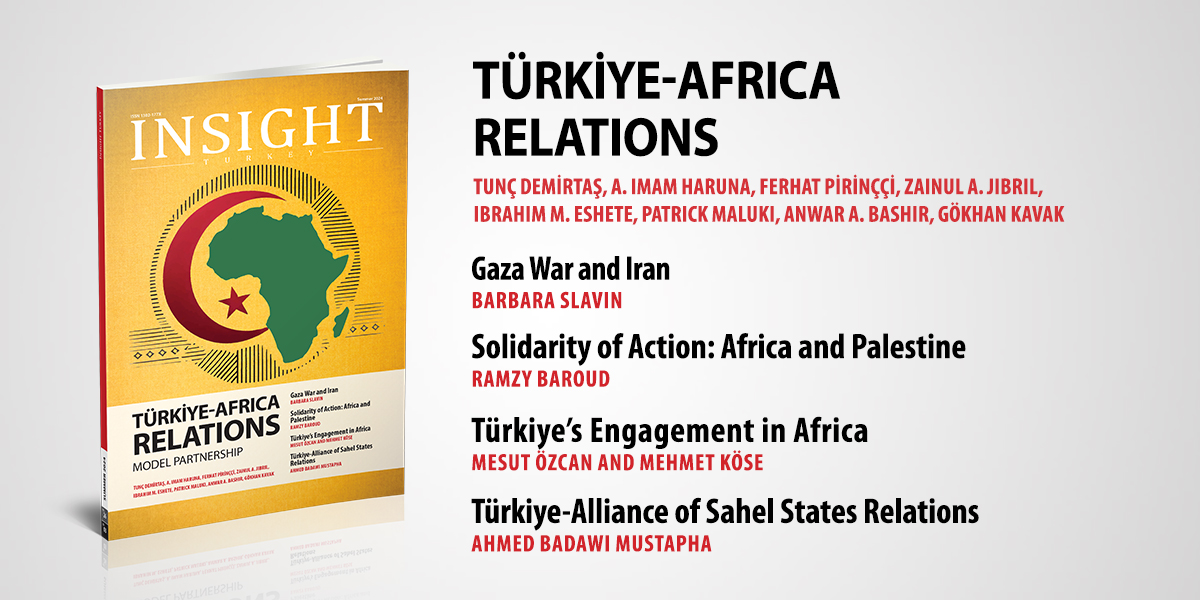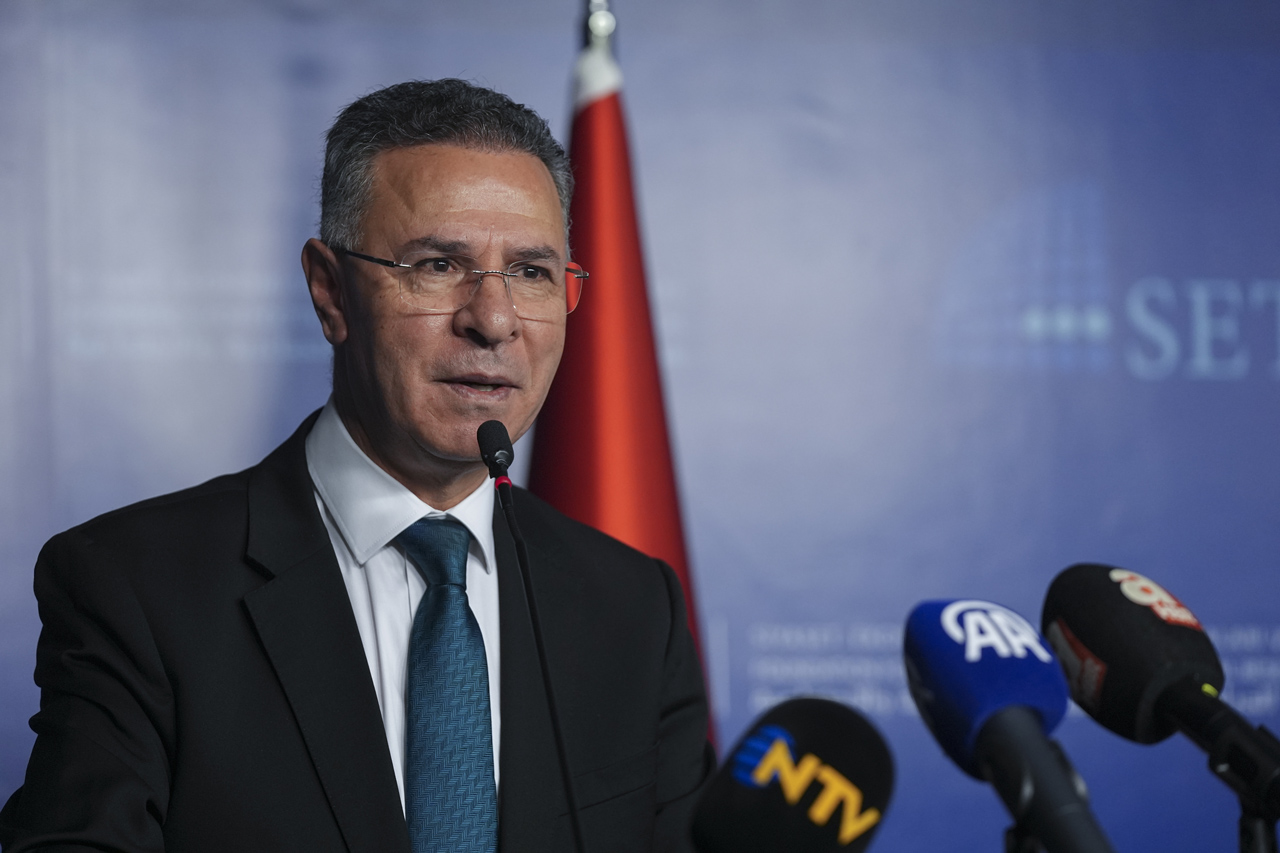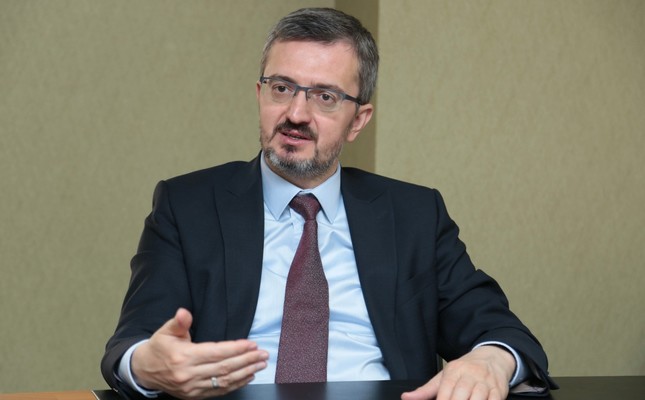
SETA General Coordinator Professor Duran: Decision to hold snap elections preventive measure against future turbulence
Head of the Turkish think tank, SETA, Burhanettin Duran said that the AK Party decided to hold elections not because of an ongoing crisis or political turbulence, but rather to tackle any future turbulence. He added that Turkey's hand in dealing with adverse conditions will be strengthened after the polls
Share
Turkey is heading towards a snap election on June 24 following opposition Nationalist Movement Party (MHP) Chair Bahçeli surprisingly called for snap elections in last week. Prof. Burhanettin Duran, the general coordinator of Turkey's leading think tank, the Foundation for Political, Economic and Social Research (SETA) said that MHP and Justice and Development Party (AK Party) both predicted that turbulence, especially in international politics, will be imminent and therefore they agreed to have early elections. According to Prof. Duran, for the first time Turkey wants to enter snap elections without being in turmoil while adding that the snap election otherwise would not have been suggested by Bahçeli nor accepted by President Erdoğan.
Prominent academic Prof. Duran believes that the decision to held snap elections is a preventive measure against possible election manipulations and he asserted that Turkey's hand at dealing with external turbulence will also be strengthened after the election.
Daily Sabah: As MHP Chair Bahçeli called for snap elections, the Turkish political scene is now engaged in discussion about it. How do you evaluate the MHP's unexpected call for snap elections?
Burhanettin Duran: It's definite that issues pertaining to his own party were important in such decision. On the other hand, this is also related to the People's Alliance. Firstly, with the November 2015 elections, the MHP stopped losing blood. After the July 15 coup attempt and April 16 referendum, the party started to recover. Even though the Good Party (İyi Party) spawned from MHP, today the MHP is at its best. The MHP's support to the government and Turkey's fight against terrorism have contributed to the party's popularity. Believing 2019 would be politically and economically turbulent due to regional issues caused by international conjuncture, the MHP proposed snap elections that would benefit the party along with the People's Alliance.
Meanwhile, the future of the People's Alliance is also crucial. The MHP supports President Erdoğan as their presidential candidate. Therefore, the MHP is supporting this transitional period in which the presidential system will settle. In this respect, I can say that the MHP believes snap elections will help this transitional period and the People's Alliance.
DS: The MHP underscored foreign policy and the international conjuncture as a reason for snap elections. Do you believe MHP's reasoning is sound?
BD: Actually, there is also another factor, namely municipal elections. These two parties, the AK Party and MHP, will rival each other in municipal elections and inevitably so. In this sense, through snap presidential and parliamentary elections, this issue is overcome as it allows the two parties to maintain the alliance relatively unscathed. I believe AK Party mayors feel relieved now, as they have been arguing for snap elections.
Regarding whether the reasoning is sound, I can say that AK Party is powerful as a government that the party could have waited one and a half years more until the original date for elections. As an ally of AK Party, the MHP could have done this as well; however, there is a possibility of turbulence in Syria's and Iraq's futures. I mean, it is not definite what will happen in Tel Rifaat, Manbij and east of Euphrates; Turkey has to yet strike deal with the U.S. here. On the other hand, Turkey's purchase of S-400 missile defense systems is also an issue. While the domestic policy will focus on elections in May, the foreign policy will be very much active as Trump has started to back his designation of Jerusalem as the capital of Israel by relocating the US embassy to the city along and as the future of nuclear deal with Iran is to be determined. These developments suggest that the political conflict over Syria will continue to be and that there might be new levels of tensions between Russia and the US. The tensions between Turkey and the US might be exacerbated because of People's Protection Units (YPG). On the other hand, Turkey may need to decide on certain macro-economic policy changes. Considering all of these factors, the MHP believes turbulence is imminent. Of course, I have to say that this is a pro-active measure. It would've been much harder to make decisions while in this turbulence. For this reason, I believe the decision to held snap elections is a preventive measure.
I can say that for the first time Turkey wants to enter snap elections without being in a turmoil. Otherwise, it would not have been suggested by Bahçeli nor accepted by President Erdoğan. If the AK Party wanted to held it in 2019, they would have persuaded Bahçeli. Thus, the proposition of snap elections was found reasonable. Meanwhile, it is also clear that a leader that is constantly in touch with Trump, Putin and Macron and planning the schedule of possible operations in Syria and Iraq is in the best position to evaluate risk and threats. AK Party decided to held elections not because of a crisis or a political turbulence, but because a turbulence is on the way.
DS: Didn't the AK Party and President Erdoğan see the coming turbulence? Until a couple of weeks before, President Erdoğan was dismissing the rumors of snap elections. So, what has changed since then?
BD: A government would never discuss snap elections for months by acknowledging it. Remember, the opposition created an atmosphere of elections with the "justice march" and discussions on legitimacy after the April 16 referendum. With this Turkey already entered a long electoral process that would have lasted until late 2019. In this respect, I believe the AK Party was forced to take this step; the opposition's incessant talk on elections put pressure on the government to immediately transition into the presidential system. This should not be forgotten.
Why were we talking about possible presidential candidates for some time? Right after the referendum, Deniz Baykal stated that Republican People's Party (CHP) chair should be a presidential candidate. In this respect, it could be said that the opposition created the environment necessary for snap elections. On the other hand, the government has to make a swift decision when snap elections are being discussed; you cannot just avoid such a subject. Even if the government had expressed the possibility of snap elections, that statement itself would have initiated the electoral process. On the other hand, prolonged ambiguity in such matters is detrimental. Therefore, I believe the dismissal of snap elections until recently was preferred to maintain stability.
DS: It is uncertain who the opposition would propose as candidates. How do you evaluate this situation? Who are the opposition's possible presidential candidates against Erdoğan?
BD: There are two figures whose candidacies are definite: President Erdoğan and Meral Akşener. Being a prospective candidate for CHP is a challenge in itself. There are two prospective candidates within the CHP already. Kılıçdaroğlu is keeping his distance with the presidential candidacy. İlhan Kesici was mentioned as a possible candidate. On the other hand, Felicity Party was talking about making Abdullah Gül a candidate. The candidacy of these figures will be determined rather quickly. The most crucial matter now is the limited time the opposition has to designate its presidential candidate. They have been principled and tried to cooperate until the announcement of snap elections; now it's time to designate the candidate. The opposition has to either designate a joint candidate, which is nearly impossible now, or a prominent political figure. In this respect, Kılıçdaroğlu's name comes to mind, or a figure from the CHP. It is hard to assure acceptance of a candidate that isn't a member of the CHP.
DS: You have expressed that you don't expect a joint presidential candidate in snap elections, contrary to the 2014 presidential elections. Could you explain why?
BD: We are actually talking about the Bahçeli factor in politics. Bahçeli had triggered the snap elections in 2002, while the 2007 presidential crisis was overcome with the MHP securing seats in the parliament. Similarly, the November 1 snap elections after June 7 elections was triggered by the MHP not forming a coalition with the AK Party. Let's also not forget that the April 16 referendum process was initiated with the MHP's call. On the other hand, Bahçeli had also proposed a joint candidate in the 2014 presidential elections. Today, Bahçeli is allied with the government; for this reason, the opposition will have a hard time in finding a joint candidate. The time is running out and the opposition won't be able to find a candidate that is accepted by all of their voter bases. Meanwhile, as this is an election pertaining to the new system, there will be a certain level of transitivity. Unlike the previous system, the elected president will now form the government and this is a factor that should be taken into consideration.
On the other hand, the parliamentary part of the elections will be more interesting. For instance, the AK Party is expected to seek for new names in order to bring new blood into the party and overcome the exhaustion. However, you need politically-apt and renowned figures for parliamentary candidacy. In this sense, I believe both the government and the opposition are unprepared.
Some 600 members of the parliament are to be elected. A new formation focusing more on legislation and domestic policies will be developed. Considering all of these, we're going through a transformation with many uncertainties. While the electorate is thinking about how the presidential system is going to function in practice and how will elections change their lives, there will be a swift campaigning process.
DS: What do you think about former president Abdullah Gül's possibility of becoming a presidential candidate?
BD: Gül still might be proposed as a presidential candidate by the Felicity Party with 100,000 signatures. However, I believe Gül won't prefer to be a candidate under the current circumstances. Gül would be a candidate in an environment in which he would be completely supported by the opposition and a part of the government. The People's Alliance weakened the probability of Gül's candidacy.
DS: Assuming President Erdoğan is reelected, what will change in domestic and regional politics? Which types of turbulence will be avoided?
BD: I believe possible turbulence pertaining to domestic politics may be avoided, while the regional and global ones are another issue. The regional uncertainty and polarization will intensify. The alliance between Saudi Arabia, Israel, and the U.S. will attempt to limit Iran and this will create new uncertainties and possibly more conflicts. The possibility of new economic sanctions to Iran, an annulment of the nuclear deal, direct conflict between Iran and Israel, and the Iran-Saudi conflict spreading to other parts of the region may open a can of worms.
Internationally speaking, Trump is employing a controlled tension strategy and revising the global responsibilities of the U.S., including multilateral and multidimensional agreements. Personally, I don't expect tensions with China, North Korea and Russia to evolve into all-out war; however, uncertainties will definitely be the characteristic of this era. Considering that even the nature of the transatlantic alliance is being reevaluated, there are uncertainties all around the globe and this will continue to be the case.
Returning to the domestic turbulence, I divide Turkish politics into two periods. The first one lasts from 2013 until the coup attempt on July 15 2016. Turkey was under attack internally with December 17-25, 2013 judicial coup attempt and October 6-8, 2014 incidents. The height of the turbulence was the military coup attempted by FETÖ. This is a period of defence and resistance for Turkey, during which the country attempted to take control.
The second period starts with July 15, 2016 and will last until June 24, 2018 elections. This is the period in which Turkey is still dealing with the remnants of the first period and attempting to remove the causes and actors of the previous crises. Turkey is actively addressing the turbulence in this period through operations like Euphrates Shield and Olive Branch along with fighting against FETÖ and PKK.
All issues won't cease to be after June 24, of course, because of regional and global factors. Yet, it's definite that Turkey needs to restructure its own domestic politics. The domestic system should be protected from further external attacks and turbulence.
The five years to follow June 24 elections will be a period of highly consolidated domestic politics and relatively easy macroeconomic decisions. Turkey's hand at dealing with external turbulence will also be strengthened. Therefore, we're transitioning into a phase in which domestic issues are overcome and regional turbulence is handled by an experienced leader. It is obvious that this transition will carry Turkey to the next level in terms of overcoming regional challenges.
DS: Could you elaborate on what you mean by "turbulence"?
BD: When I say turbulence, I mean external crises triggering internal fault lines. These crises attempt to weaken public institutions and democracy.
Don't forget, Turkey experienced an attempt at civil war with the Gezi Park Protests on the road to 2014-2015 elections, FETÖ's judicial coup on December 17-25, 2013, the October 6-8 incidents in 2014 in Southeastern Anatolia during which PKK killed dozens of people. In retrospect, we see these incidents were triggered by external manipulations.
Having one and a half years to elections made Turkey prone to more external interference. In this respect, snap elections are a preventive measure against such manipulation; a possible interference was thwarted. To believe there is no external interference towards Turkey is to live in the past, specifically before 2013. The events that transpired since 2013 suggests to us that Turkey's democratization process and integration with the EU were used for certain covert operations. Being integrated with the outside world is not a weakness in itself, of course. It's also not an obstacle to protecting your citizens from external manipulations. Even the U.S. is talking about Russian interference in elections; under such circumstances we have to reevaluate external interference in a multidimensional manner.
DS: How will Turkish foreign policy look after the elections?
BD: Turkey was forced to revise the parameters of its foreign policy in the last five years. Firstly, Turkey had to deal with the regional consequences of the Arab Spring; the country was forced to resort to hard power in Syria and Iraq. These led to the revision of relations with all actors. Tense relations with the U.S. over the YPG and FETÖ, similar tensions with Germany and Austria, and the initial deterioration of relations with Russia with the downing of their aircraft in 2015 followed by normalization and improvement with the Astana process are some of the examples of this revision.We are at a point where Turkey's traditional foreign policy is shifting. Currently, Turkey doesn't believe cooperating with Russia and Iran is mutually exclusive with being an ally of the U.S. Turkey also doesn't believe purchasing S-400s from Russia as an infringement of its alliance with NATO because the understanding of alliance has changed globally. Thus, Turkey is adapting to this new reality as a sovereign country. Turkey had to face the reality that her closest ally, a superpower which has military bases in the country, supported Turkey's nemesis the PKK. All of these necessitated the revision of traditional actors and relations in foreign policy. If the U.S. is to revise its Middle Eastern policies and will partially retreat from the region, this will lead to new crises in which regional powers rival and interfere with each other. This includes Iraq and Syria, as well as the whole Gulf area.
A second uncertainty is about the tensions between Iran and Israel/Saudi Arabia and how it will transform with the U.S. contribution. Turkey cannot become a proponent of either side; it should have an intermediary role. There will be pressure on Turkey to join either side; yet, it won't be in Turkey's best interest. For this reason, Turkey will have to seek a third way. This might even include forming a coalition with other countries which don't want to side with either camp. In order to establish such a coalition, Turkey has to have a secure domestic environment and political stability so that internal fault lines aren't triggered as a retaliation.
If Turkey has a stable five years following the June 24 elections, the country will have the opportunity to withstand economic and financial assaults as well as regional turbulence. Tensions between Iran and Saudi Arabia will harm both parties; an intermediary role in such a conflict would create many opportunities for Turkey. In this respect, I believe Turkey may become the leading regional power if the country is able to subside the said internal turbulence and maintains its active diplomacy and use of hard power when necessary. Neither Iran's 40-year long desire to expand nor Crown Prince Salman's aim to become a role model will subside. The Iranian regime doesn't want to back from all the gains it acquired in Iraq, Syria, Lebanon and Palestine. Similarly, cooperating with Israel, proposing himself as the leader of the Islamic world and as a new role model, Saudi Crown Prince Mohammad bin Salman's ambitions won't be easily extinguished. Therefore, as an island of stability in the region, Turkey will resort to hard power when necessary, but will maintain a balancing role to become more prominent. This will allow the country to consolidate its national interests.
[Daily Sabah, Ali ünal 22 April 2018]
Tags »
Related Articles

